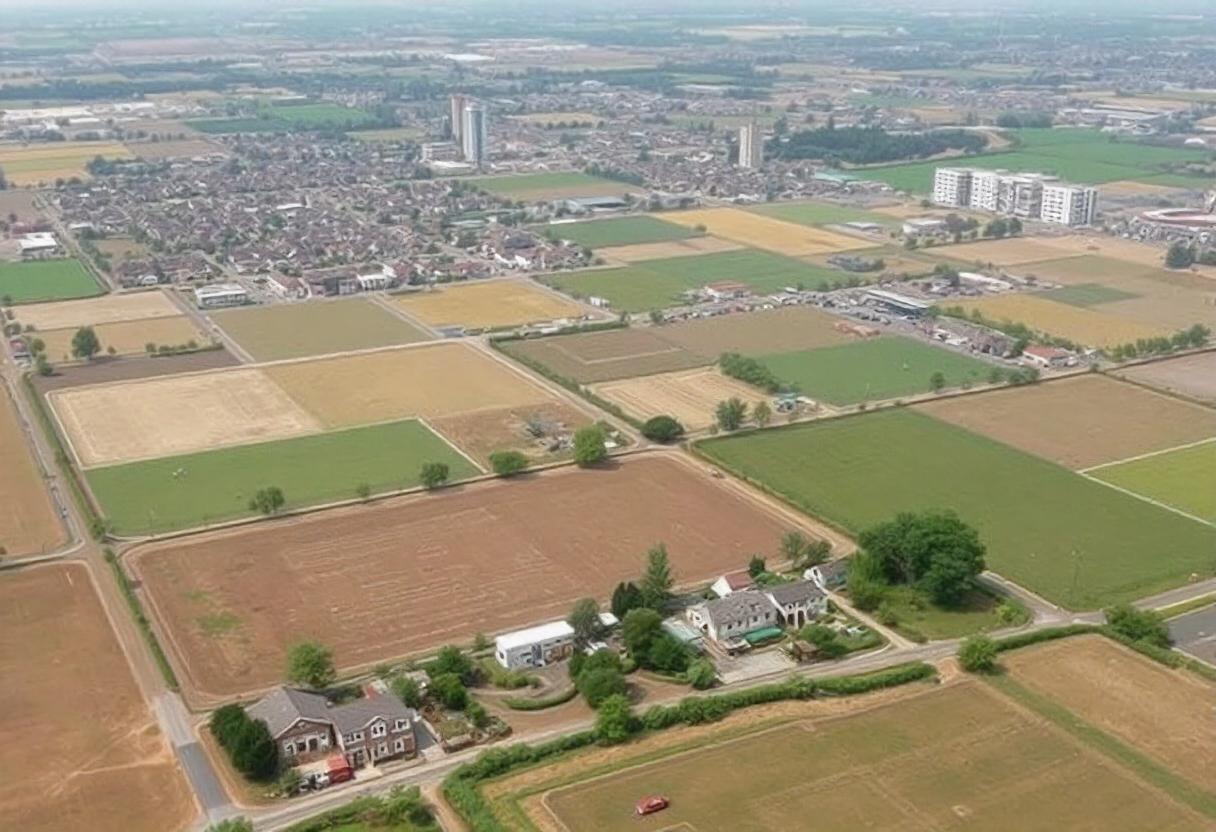
Urbanization is reshaping landscapes around the world, significantly affecting agricultural practices and farmland. As cities expand and populations grow, the conversion of rural land into urban areas becomes a prominent issue. This article explores the multifaceted impact of urbanization on farmland.
Conversion of Farmland to Urban Areas
One of the most direct effects of urbanization is the conversion of agricultural land into residential, commercial, and industrial spaces. As urban areas spread, fertile farmland is often sacrificed to accommodate new infrastructure and housing developments. This conversion leads to a decrease in available farmland, impacting local food production and agricultural sustainability.
Reduction in Agricultural Land Availability
Urban sprawl reduces the overall availability of land for farming. With less land available, farmers may face challenges in maintaining crop yields and meeting food demands. Additionally, the loss of prime agricultural land can lead to increased competition for the remaining farmland, driving up land prices and making it more difficult for new and small-scale farmers to enter the industry.
Fragmentation of Farmland
Urbanization often leads to the fragmentation of farmland into smaller, isolated plots. This fragmentation can disrupt agricultural operations by making it harder for farmers to manage their land efficiently. Smaller plots may result in less effective use of machinery and increased operational costs, which can impact the overall productivity of farming enterprises.
Environmental Implications
The conversion of farmland to urban areas can have significant environmental consequences. Urban development often involves the removal of vegetation and the alteration of natural landscapes, leading to issues such as soil erosion, loss of biodiversity, and changes in local water cycles. These environmental changes can further impact agricultural practices and the health of the surrounding ecosystems.
Impact on Local Food Systems
The reduction of farmland due to urbanization can affect local food systems. With less land available for farming, local food production may decrease, leading to increased reliance on imported food. This can affect food security and increase the carbon footprint associated with transporting food from distant regions.
Economic Effects on Agriculture
Urbanization can have various economic effects on agriculture. As farmland becomes scarcer, land prices may rise, increasing the cost of farming operations. Additionally, the loss of agricultural land can reduce the economic viability of farming in certain areas, leading to economic challenges for farmers and rural communities.
Changes in Land Use Policies
To mitigate the impacts of urbanization on farmland, many regions are adopting land use policies aimed at protecting agricultural areas. These policies may include zoning regulations that limit the extent of urban development or incentives for preserving farmland. Such measures can help balance urban growth with the need to maintain agricultural productivity.
Challenges for Farmers
Farmers face numerous challenges as urbanization encroaches on their land. These challenges include adjusting to reduced land availability, adapting to changing environmental conditions, and navigating shifting economic pressures. To address these challenges, farmers may need to adopt innovative practices and strategies to sustain their operations amidst urban expansion.
Technological Innovations
Technological innovations in agriculture can help mitigate some of the negative impacts of urbanization. Advances in precision farming, vertical agriculture, and other technologies can enhance the efficiency of farming operations and help maximize the productivity of available farmland. By integrating new technologies, farmers can better manage their resources and adapt to changing conditions.
Future Outlook
The ongoing trend of urbanization will likely continue to impact farmland and agriculture in various ways. As cities grow and populations increase, finding a balance between urban development and agricultural preservation will be crucial. Continued research, policy development, and technological advancements will play key roles in addressing the challenges posed by urbanization and ensuring the sustainability of agricultural systems.